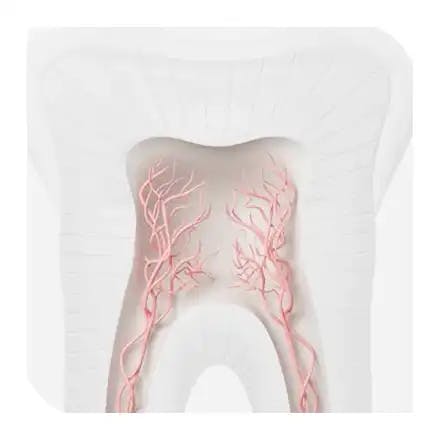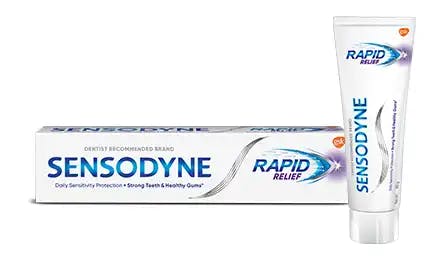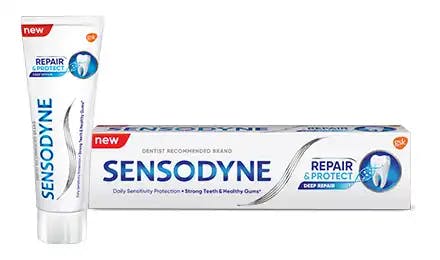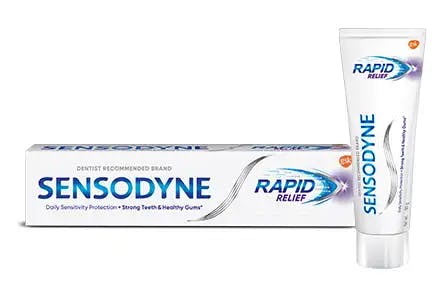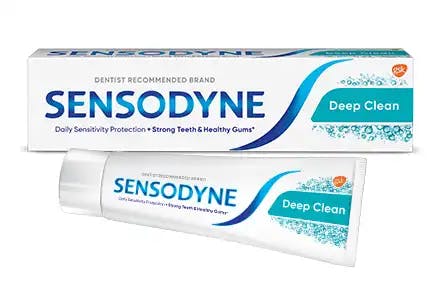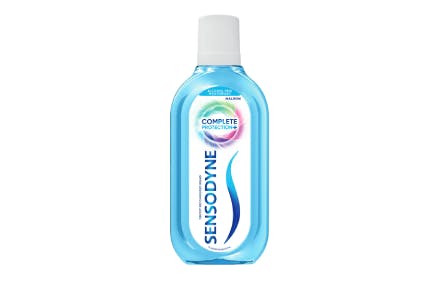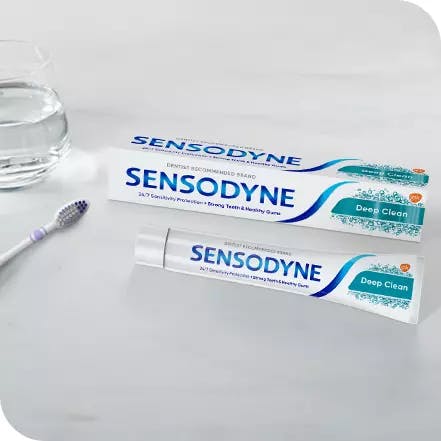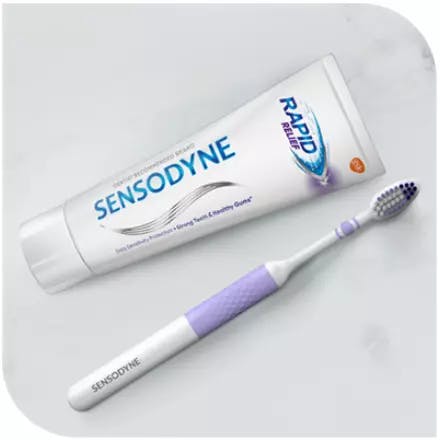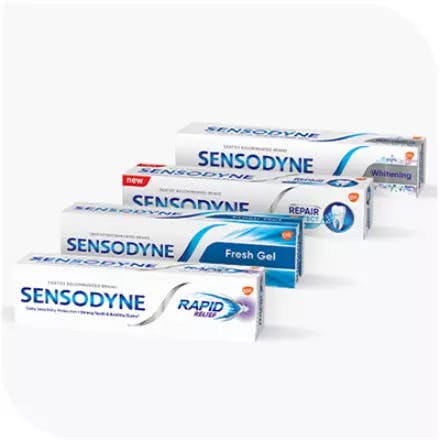Tips for Managing Tooth Sensitivity to Hot Food and Drink
A spoonful of steamy soup. A sip of hot coffee. If you have sensitive teeth, these everyday hot food and drinks can trigger discomfort. When this happens, do you find yourself wondering, ‘Why do hot drinks make my teeth twinge?’
While it’s important to see a dentist when you are experiencing trouble with your teeth, the discomfort may indicate sensitive teeth, a manageable condition. Tooth sensitivity is very common, as many as one in three people may experience it. The key to helping beat it is understanding why hot drinks cause discomfort in your teeth—and how to help stop it from happening.
We think you’ll agree that having to avoid your favorite hot food and drinks isn’t the answer. You should be able to enjoy them just like everyone else does.
Why are my teeth sensitive to hot food?
If you suffer from sudden tooth discomfort with hot food or drinks, you may have dentine hypersensitivity. This condition can be the result when gums recede or enamel gets worn away, exposing the dentine. The softer, inner part of the tooth. This exposure of the dentine can result from:
- Gum Recession
Your tooth enamel only covers the crowns of your teeth, the portion that is visible outside of your gums. If your gums start to recede, as can happen with gum disease for example, the sensitive dentine can become exposed.
- Over-brushing
The same tool that helps clean your teeth and gums can also hurt them if you apply too much pressure. Technique is also important: if you brush side-to-side in a sawing motion, you may end up brushing away the protective enamel layer that helps keep your teeth healthy.
- Sugars and acids
As much as you may love eating sweet and sour foods, so do bacteria in your mouth. They in turn produce acids that eat the enamel on your teeth. Even some healthier food and drinks, such as those containing citrus fruits and/or carbonated water, depending on how you consume them, can cause enamel wear that may lead to tooth sensitivity.
- Teeth grinding
Technically called bruxism, grinding your teeth is something you may not even be aware that you do. It may happen during times of stress and some people do it in their sleep without ever realizing it. A telltale symptom of teeth grinding is sensitive teeth.
- Acid reflux
Gastroesophageal Reflux (GERD) can also affect their teeth. When stomach acid makes its way back up your esophagus, it causes the uncomfortable heartburn that is familiar to many. But it can also erode the enamel from your teeth, leading to tooth sensitivity.
- Teeth whitening
Another common culprit is the wide range of teeth whitening treatments available that can cause your teeth to feel more sensitive. Many contain strong chemicals which can cause tooth sensitivity.
You Could Change Your Eating Habits…
Once your teeth’s protective enamel has worn away, contact with certain triggers—including hot food and drinks—can excite nerves inside the tooth, causing discomfort. When this happens, you may start to avoid the food, drinks and even activities you love, which can really affect your enjoyment.
We think life’s too short to make this compromise and you may not realize how easy it can be to take control of the situation. A simple and effective solution is to brush twice a day with a toothpaste that provides ongoing sensitivity protection, like Sensodyne.
But until you see your dentist and stock up on a sensitivity toothpaste, like Sensodyne, here are a few tips on how to manage the sensitivity of your teeth to hot food and drinks.
- Wait for it
Before taking a sip or bite of something hot, let it sit for a few minutes. You will likely enjoy it all the more for having waited (and avoided the short, sharp sensation of sensitive teeth) and the delicate skin on your tongue and the roof of your mouth will certainly thank you!
- Cool it
Add an ice cube to hot drinks and soups to help cool them off. If you’re concerned about diluting their flavor, you can keep frozen cubes of different liquids, (such as stocks, soups and even tea and coffee) in your freezer and use those instead of plain ice.
- Pair It
Match hot food and drinks that are acidic, such as tea with lemon or tomato soup, with nonacidic (or more alkaline) food like cheese, water, or bread. An acidic diet can contribute to enamel erosion and lead to increased sensitivity. And remember, acids can come in unexpected forms. Even the seemingly innocent soda water is acidic!
…Or You Can Get Protection and Improve Your Oral Health
Who has the energy to maintain such constant vigilance around hot and cold food and drinks? There is a simpler way to take control of the situation. Preventing and protecting sensitive teeth is usually pretty easy. It mainly involves just doing what you should be doing anyway to keep your mouth healthy. You should of course discuss your tooth sensitivity with your dentist or hygienist.
Here are five ways to update your oral care routine:
1. Brush twice each day with a toothpaste that provides ongoing sensitivity protection, like Sensodyne.
2. Avoid brushing one hour after eating or drinking acidic food. This is when tooth enamel is at its softest. The acids in food and drink will temporarily weaken your tooth enamel, making it more vulnerable to eroding. The last thing you want to do is attack it when it’s down!
How you brush is also important. Choose a soft-bristled toothbrush and use it in a circular motion, to avoid any excessive pressure that could damage the enamel.
3. Sleep with a mouthguard. If you and your dentist determine that you’re grinding your teeth at night, you may be encouraged to wear a mouthguard to prevent it. While these are available over the counter, your dentist can make you a custom-made guard that will result in a better fit and probably be more comfortable too.
4. Use a mouthwash specially formulated to help protect your teeth’s enamel. It can help to re-harden your acid-softened tooth enamel and to help protect your teeth against the effects of acidic food and drinks.
Try Sensodyne, a dentist recommended toothpaste brand for sensitive teeth. With a range of toothpastes that contain special ingredients to protect from sensitivity.
